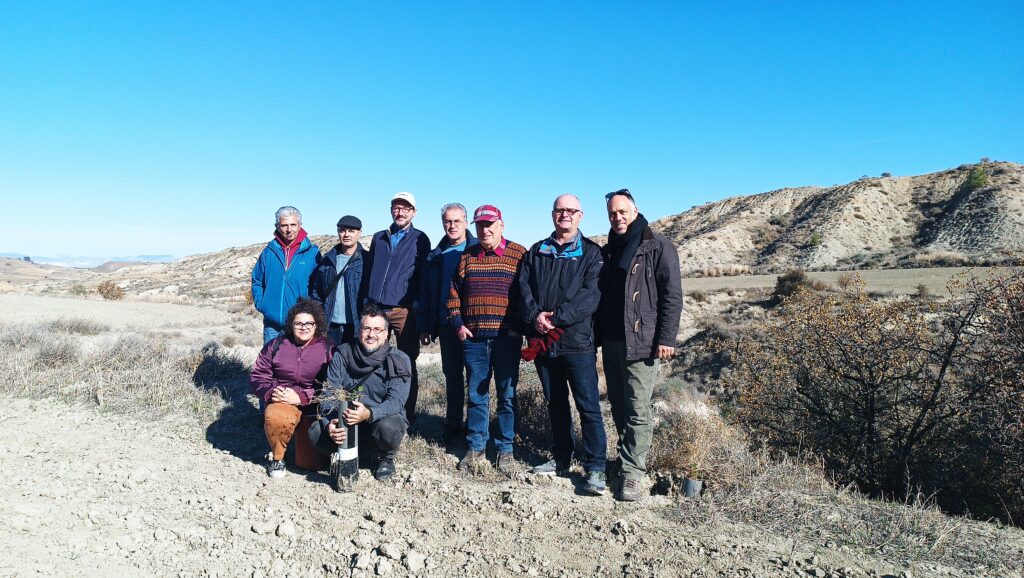
On November 26 and 27, 2024, the second meeting of the Scientific Committee of the European project LIFE-AgrOassis took place.
The purpose of the meeting was to monitor the progress of the project’s activities, discuss key developments, and make decisions regarding the scientific aspects of the work being carried out.
On the first day, a site visit was conducted in areas of Pera Orinis, in the Nicosia District, where tree planting for the current planting season (November 2024 – January 2025) is being implemented.
Committee members had the opportunity to observe the Deep Root Training Tubes planting method up close—an innovative practice applied within the LIFE-AgrOassis project—demonstrated by the scientific coordinator of the action, Dr. Dimitris Sarris.
The committee visited agricultural plots where project activities are being implemented, gaining a comprehensive understanding of the challenges faced.
The external members of the committee—Prof. Claudio Zucca, Prof. Avi Perevolovsky, and Prof. Tal Svoray—as well as the project’s scientific partners from Thessaly, Dr. Christos Kavalarias and Dr. Aris Kyparissis, had the chance to see the local landscape, assess the current conditions firsthand, and evaluate the progress of the LIFE-AgrOassis project.
On the second day, the meeting moved to the facilities of the Open University of Cyprus (OUC), where project partners presented the progress and results achieved so far.
The members of the Scientific Committee provided valuable advice and encouraged the project team to continue their efforts.
The visit concluded with a two-day online seminar (webinar) hosted by the Open University of Cyprus.
During the webinar, members of the Scientific Committee and project partners engaged with the wider public, sharing knowledge on agricultural and regenerative practices that can enhance agriculture’s resilience to climate change.